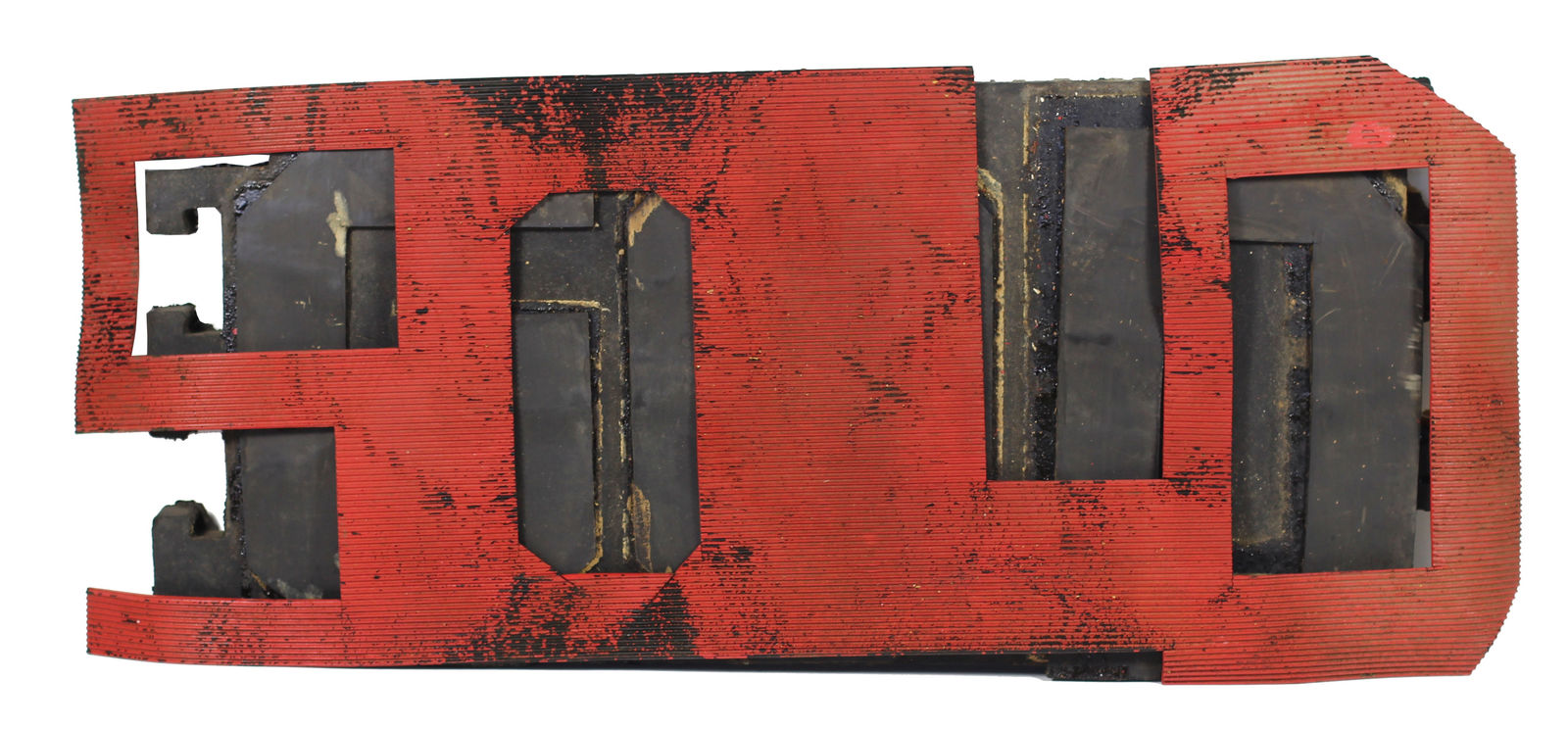Boris Lurie
Boris Lurie is not an easy artist. When you encounter his work, you must be willing to receive an emotional discharge, a shock, and even more so if it is the first time. The qualifiers that precede him are those of transgressor, obsessive, radical, rebel, heart-breaking… used in superlative and always in an exhaustive manner. It is obvious that the topics that his works deal with are not by chance; they are, rather, the expression of an artist who has had a traumatic experience in his life, who cannot remain impassive to the suffering of humankind. You can see Boris Lurie, like a conscience surgeon, from afar, willing to uncover the wounds of the human condition with the scalpel of art, to expose the puss that seeps from the sick society where he lives. He is, indeed, an artist who does not mince his words.
This reality does not lie in the titles of his works or in the materials he uses -although there are some that speak for themselves -, but in the images and concepts that uphold them. His collages and assemblages are the breeding ground for this. In any case, it is waste, decomposed material, arranged in unexpected juxtapositions and associations, in search for a new memory. This is what occurs in “Sold God”, an assemblage of simple elements - oil and rubber - that recall letters, letters that compose superimposed, half-hidden, distorted terms. Two words suffice to concrete the discourse: Sold God. Boris Lurie raises his angry voice against that polytheist humankind of rubber, mouldable gods, converted into goods to be wasted. In the garden of delights of consumer societies, everything goes. God has been sold in a farce by the religious bourgeois, shocked to see him in the brothels, insulted by tradespeople desperate for easy sales, pursued by a ruling class that longs for his attributes; god, buried by printing presses based on falsehood and deceit. God, sold by a cowardly and guilty society where Boris Lurie notes that “dehumanization – as Chris Shultz correctly says- not only resides in the Nazis and their collaborators, but is alive and prospering in the avenues of New York”.
And what is all of this for? The Austrian sociologist and thinker, Ernst Fischer, said that “art must not do anything, but it conquers all”. Declaring the work of artists who experienced, in their own flesh, the disasters of war as snobbish – Ronald Kay argued – is “a terrorist expression that denotes a fatal ignorance”. Those who kept it inside, more than anyone, were forced to bring it out to be able to digest it, and they cry when they do so. The same occurred with Wolf Vostell, a creator also committed to life, peace, people and their rights, a friend and admirer of Boris Lurie, and of the same opinion.
Artists will always be in the fight as a protest and artistic rebellion. Art educates and teaches life. The field of failure, injustices and human stupidity is so great, so very great, that art will never cease to launch mental and aesthetic bombs onto it; bombs that are capable of transforming thinking, education, ideology, and society. The munition used to manufacture these charges – collages, paint, assemblages, décollages, happenings, etc. etc. – varies, but the function and purpose are the same: to work for truth, the obsession for truth, “the fanaticism of truth”.
José Antonio Agúndez García Managing Director
Vostell Malpartida Museum Consortium
